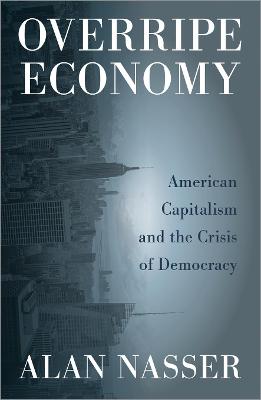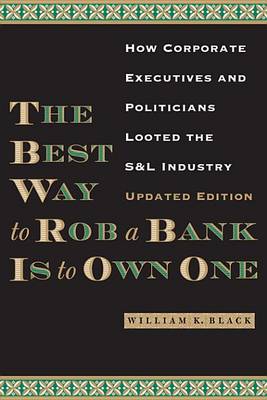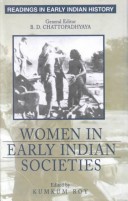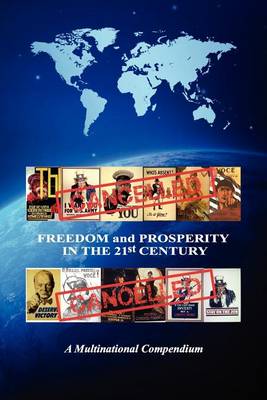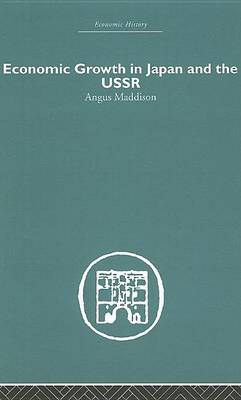Adam Smith's the Wealth of Nations (Infinite Success)
by Karen McCreadie
Published in 1776, Adam Smith's The Wealth of Nations was the first comprehensive treatment of political economy. Today it is considered one of the most influential books ever written and its author is regarded as the father of classical economics. Smith did for economics what Darwin did for science. Here Karen McCreadie interprets this inspiring book for the modern day world of finance, business and economics, illustrating the timeless nature of Smith's insights by bringing them to life with tw...
From industrialisation to the present day, Overripe Economy is a genealogy of the emergence of a finance-ridden, authoritarian, austerity-plagued American capitalism. This panoramic political-economic history of the country, surveys the ruthlessly competitive capitalism of the nineteenth century, the maturation of industrial capitalism in the 1920s, the rise and fall of capitalism's Golden Age and the ensuing decline towards the modern era. Alan Nasser shows why the emergence of the persiste...
The Nature of Capital and Income
by James Tobin, Thorstein B Veblen, and Edwin B Wilson
The exclusion of the destitute population from the formal financial system is a long-standing problem in India. This book examines the performance of financial inclusion policies in India to understand their impact on two urban vulnerable groups, Slum Dwellers and Beggars. This study includes analysis at the national level, the variables of the financial inclusion index like Penetration, Availability, and Usage from 2006 to 2020 from the world bank data set. Similarly, the authors examine five p...
Britain and the Greek Economic Crisis, 1944-1947
by Athanasios Lykogiannis
Britain and the Greek Economic Crisis, 1944-1947 concentrates on Anglo-Greek interactions in economic matters during the period of political and economic turmoil between the Axis occupation of Greece and the Greek civil war. At the end of 1944, the national unity government of newly liberated Greece faced a severe inflationary crisis. Although it could count on considerable assistance and advice from its allies, much depended on Greece's own actions and its determination to restore economic norm...
Mercantilism and the East India Trade
by P.J. Thomas and Parakunnel Joseph Thomas
This book is a good source of economic understanding both for the student and practioner. It lays a good framework of mercantilism especially with a well researched historical background. A must to have for anyone who wants to understand the origins of outsourcing international trade. First Published in 1963. Routledge is an imprint of Taylor & Francis, an informa company.
In this expert insider’s account of the savings and loan debacle of the 1980s, William Black lays bare the strategies that corrupt CEOs and CFOs—in collusion with those who have regulatory oversight of their industries—use to defraud companies for their personal gain. Recounting the investigations he conducted as Director of Litigation for the Federal Home Loan Bank Board, Black fully reveals how Charles Keating and hundreds of other SL owners took advantage of a weak regulatory environment to p...
The world's eighth largest economy has a unique shape and structure. Characterized by strong social networks and a niche capitalism built on successful small and medium-sized enterprises, the Italian economy has a nature distinct from its European neighbours. Vera Zamagni charts Italy's recent economic history from the postwar years of reconstruction through to the present day and the legacy of the financial crisis. Combining illustrative data with qualitative analysis, she provides a clear and...
Alienating Labour (International Studies in Social History, #22)
by Eszter Bartha
The Communist Party dictatorships in Hungary and East Germany sought to win over the "masses" with promises of providing for ever-increasing levels of consumption. This policy - successful at the outset - in the long-term proved to be detrimental for the regimes because it shifted working class political consciousness to the right while it effectively excluded leftist alternatives from the public sphere. This book argues that this policy can provide the key to understanding of the collapse of th...
Between 1880 and 1940, Navajo and Ute families and westward-trending Anglos met in the ""bullpens"" of southwestern trading posts to barter for material goods. As the products of the livestock economy of Navajo culture were exchanged for the merchandise of an industrialized nation, a wealth of cultural knowledge also changed hands. In Both Sides of the Bullpen, Robert S. McPherson reveals the ways that Navajo tradition fundamentally reshaped and defined trading practices in the Four Corners area...
FREEDOM AND PROSPERITY IN THE 21st CENTURY
by Zviad Kliment Lazarashvili, Gari T Chapidze, and Chieke E Ihejirika
Debt as Power (Theory for a Global Age)
by Richard H. Robbins and Tim Di Muzio
Debt as Power is a timely and innovative contribution to our understanding of one of the most prescient issues of our time: the explosion of debt across the global economy and related requirement of political leaders to pursue exponential growth to meet the demands of creditors and investors. The book is distinctive in offering a historically sensitive and comprehensive analysis of debt as an interconnected and global phenomenon.
Economic Growth in Japan and the USSR
by Professor of Economics Angus Maddison
International Monetary Systems in Historical Perspective
by Dr. Jaime Reis
This text examines 150 years' worth of efforts at constructing arrangements and rules for international monetary interaction, and arguing that present day national authorities do not seem to have come much closer to achieving the aim of enduring exchange rate stability combined with good macroeconomic performance. This contributors to this volume offer an insight into the working of the key experiences, including 19th-century bimetallism, the "classical" gold standard, Bretton Woods ans the Euro...
Dutch Deltas (Brill's Studies in Maritime History, #1)
by Werner Scheltjens
In Dutch Deltas, Werner Scheltjens examines the emergence, functions and structure of the Low Countries' maritime transport system between ca. 1300 and 1850. Scheltjens introduces the delta as a suitable geographical unit of analysis for understanding the regional economic origins of communities of maritime transporters. The author proves that changes in maritime trade networks and in the structure of regional economies entailed a process of specialisation, which led to the emergence of 'profess...
L'Arriere-Plan Philosophique de l'Economie Politique de John Stuart Mill
by Cinla Akdere
Inter and Post-war Tourism in Western Europe, 1916-1960 (Palgrave Studies in Economic History)
This edited collection is a novel book with contributions from eleven expert researchers on the history of tourism in Europe. This book explores the growth of tourism in contemporary postwar Europe, especially during the periods following the First and Second World Wars and the Spanish Civil War. It reveals both the work carried out by social agents and institutions to develop tourism, and the contribution of tourism in boosting the economy and the recovery of morale in the Old Continent Its or...
The European Union is a besieged institution. It is struggling in vain to overcome the eurozone crisis and faces an influx of refugees not seen since World War II. The Schengen Agreement is a dead letter, and Britain stands on the brink of leaving altogether. The EU is unfit for the challenges of the coming age of increased global competition and high tech. In sum, the drive for an "ever-closer union" has set Europe on the wrong course: plunged it into depression, fuelled national antagonisms, d...
World Finance between Evolution and Revolution
In this volume, the authors stress the importance of a balance between historical circumstance and ex-novo design (evolution and revolution) for feasible and flexible rules of international finance, and apply this lesson to the debate on a new international financial architecture.
Trade Unions in Britain 1933-1992 (Studies in economic & social history)
by Chris Wrigley
This study sets the trade unions in the broader contexts of the economy and of industrial relations, and also examines the pattern of trade union development in Britain over 60 years. It discusses such controversies as those over the trade unions' impact on government policy, the performance of the economy and British politics. It also looks at the trade union record in representing a large sector of the workforce, not its successes and failures.

